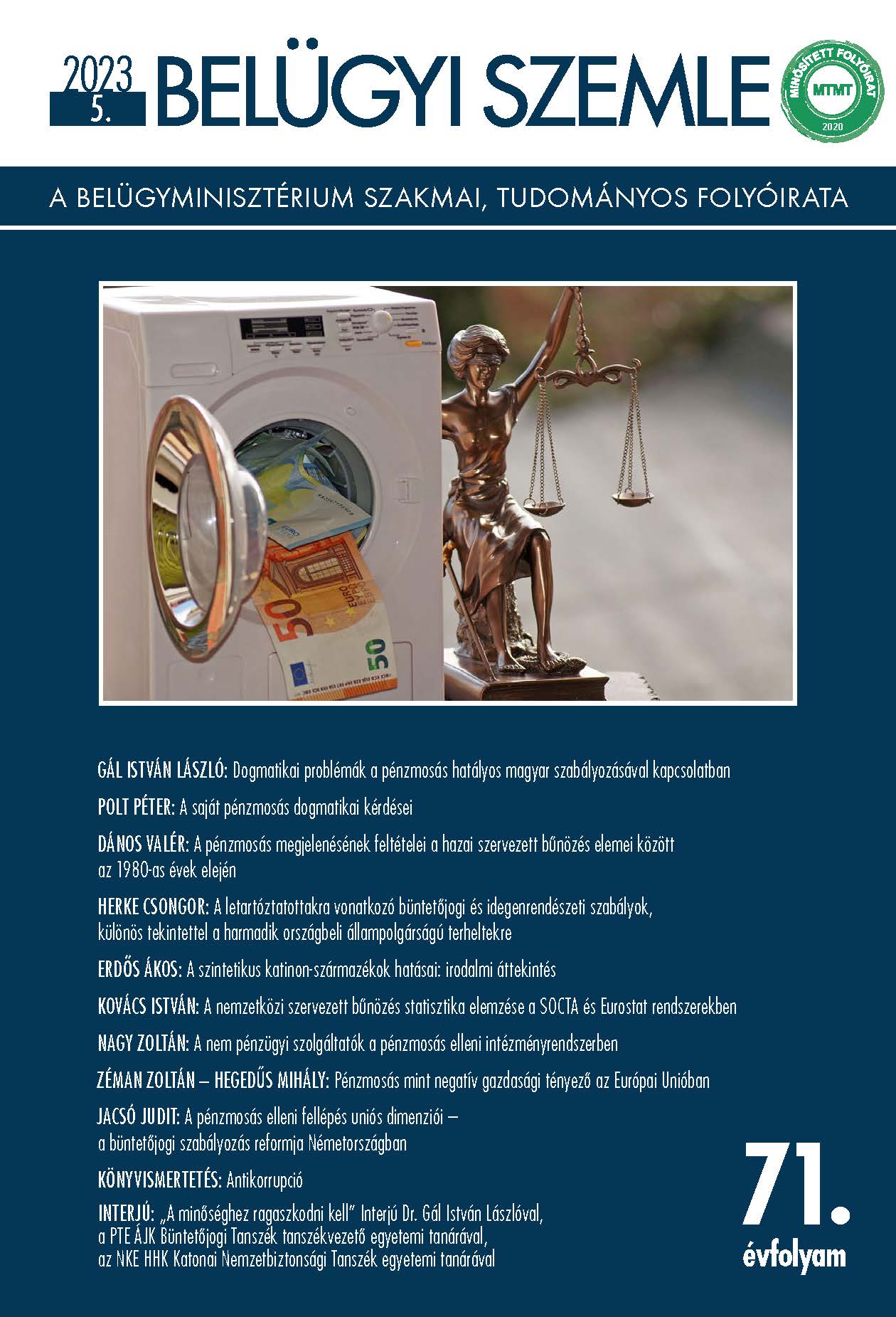Abstract
Money laundering is an illegal economic service carried out under the guise of legal economic operations, as a result of which the origin of the property acquired through crime can be verified, freeing it from its recognizably illegal nature. Its micro- and macro-economic effects are also extremely dangerous, the fight against money laundering can strengthen confidence in the financial system in addition to the fight against organized crime. The new Hungarian criminal law regulations effective from 1 January 2021, in addition to complying the expectations of international organizations and international conventions in force, also contain provisions that are contrary to the dogmatics of the Hungarian material criminal law and cannot be applied in practice. Resolving the many contradictions will be the task of law enforcement rather than legislation.
Aim: To present the effective regulation of money laundering and to analyse factual elements incompatible with the dogmatics of Hungarian criminal law, and to outline possible alternatives for solving the problems.
Methodology: Analytical presentation of the facts, analysis of the legal text and justification in the light of the literature and practice.
Findings: The first form of money laundering, material static money laundering, is inapplicable in practice: it conflicts with the prohibition of double evaluation, the prohibition of self-incrimination, and among the cases of apparent material accumulation, it is classified as an unpunished subsequent act. For this reason, there is a general lack of danger to society behind the facts. It had to be codified in this way because of our international obligations, but in my opinion, it should not be applied in practice.
Value: The study can provide a reference point for law enforcement practice in solving the issues that arise.

